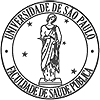Research Lines, Projects and Advisors
1. Environmental and Health Quality (QAS)
The focus on the researches below lies on the environmental quality improvement, environmental impact minimization, and public health effects, which are
- To conduct qualitative and quantitative investigations related to the environmental quality of waters, soil, sewage and effluents, and residues;
- To analyze the efficiencies of water and sewage treatments;
- To monitor water quality for human-consumption and reuse;
- To detect and quantify pathogens in environmental matrixes.
Projects:
- 1.1 Evaluation, Prevention, and Environmental Quality Control
To study the evaluation of environmental quality (water, soil, air, and biota), and the applicable prevention and control measures with the purpose of reducing human health harms and improving environmental conditions;
To approach studies of environmental impacts and health effects concerning the atmospheric and liquid effluent waste, and the environmental solid residue waste;
To manage solid residues and environmental liabilities.
Responsible: Prof. Dr. Wanda Maria Risso Günther
- 1.2 Systems and Technologies of Environmental Sanitation
To evaluate the application of different systems and technologies of environmental sanitation;
To approach processes and systems for the rational use and reuse of waters;
To evaluate water supply systems, collection, removal, treatment, and final effluent disposal.
Responsible: Prof. Dr. Wanderley da Silva Paganini
- 1.3 Environmental Pollutants
Quantitative and qualitative studies on the characterization of physical, chemical, and biological agents, mainly those of higher toxicity, in external and internal environment, urban, rural, and industrial areas, and in movable and fixed sources.
Responsible: Prof. Dr. João Vicente de Assunção
- 1.4 Environmental Parasitology and Microbiology
To approach issues related to the use of indicator organisms on the evaluation of the environmental quality of waters, soil, and air;
To monitor water for human-consumption and reuse;
To detect and quantify the emergent and re-emergent pathogens in environmental matrixes.
Responsible: Prof. Dr. José Luiz Negrão Mucci
- 2. Policies, Planning, and Environmental Management (PGA)
Based on subsiding the elaboration and/or evaluation of public policies related to the subject, this line comprises the studies concerning the understanding of health-environment relations emphasizing the employment of special methods, geo-processing, and the analysis of quantitative risks and the sustainability indicators. Moreover, it approaches issues directly related to decision-making processes, environmental education, and the community’s participation in environmental planning and management and public health.
Projects:
- 2.1 Public Policies, Environment, and Health
This line studies the development and implementation of public policies, approaching society-environment interaction processes, aiming to understand the political implications onto the environmental-health issues.
Responsible: Prof. Dr. Arlindo Philippi Jr.
- 2.2 Evaluation, Management, and Communication of Environmental Risks
To develop and apply the quantitative methods of evaluations of exposure and risks to human health associated to chronic and acute exposures of environmental contaminants (physical, chemical, and biological);
To approach the application of the risk-concept in decision-making, environmental management, and public health processes.
2.3 Health and Environment
To approach studies related to the application of special-temporal analysis to reach the understanding of health-society-environment relations aiming to subside the adoption of appropriate public policies;
To emphasize the application of geo-processing tools onto the studies of health impacts resulting from the climatic and environmental alterations, sugar-cane burning, and the vegetation cover changes.
Responsible: Prof. Dr. Helena Ribeiro
- 2.4 Environmental Management Instruments
To identify and analyze the environmental management systems in public, entrepreneurial, and civil society sectors;
To contribute to the improvement of public healthcare and environment;
To develop and apply sustainability indicators.
Responsible: Prof. Dr. Leandro Luiz Giatti
- 3. Workers’ Healthcare (STR)
The concern of this lineis to carry out investigations about work and health conditions, work organization and its possible work-associations with incidents and accidents and work-related diseases. Furthermore, it has the goal to propose promotion and surveillance actions in the workers’ healthcare area as well as actions articulated among several social segments.
Projects:
- 3.1 Human and Organizational Factors of Work
This is about studies on work-shifts, work and life condition impacts upon health, psychosomatic work factors, and accessibility and ergonomics.
Responsible: Prof. Dr. Claudia Roberta de Castro Moreno
- 3.2 Work-related Diseases and Risks
To study the effects upon health and welfare caused by etiologic-agent exposure of different nature found in work environment. Included in these effects is the precocious functional aging. Several professional categories in different age groups including adults and youngsters have been investigated.
To surveil workers’ health and work accidents.
Responsible: Prof. Dr. Frida Marina Fischer

